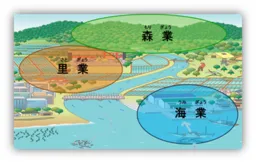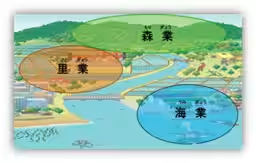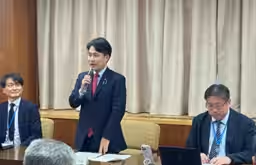

Japan's Future Collaborative Strategy: Revitalizing Rural Areas Through Innovation and Co-Creation
Japan's Future Collaborative Strategy: Revitalizing Rural Areas Through Innovation and Co-Creation
On May 28, 2023, the Ministry of Agriculture, Forestry and Fisheries of Japan presented the "Future Co-Creation Strategy for Local Regions," chaired by the Vice Minister Mr. Takunami. This strategy aims to serve as a guiding compass, fostering a new era of rural revitalization, termed "Regional Creation 2.0." It emphasizes value creation across various sectors, including agriculture, forestry, and fisheries, through multi-sectoral collaboration and co-creation.
Key Highlights of the Strategy
1. Vision for Rural Areas
In the urgent proposals presented at the end of March, it was stressed that rural areas in Japan can be delicious, rich, and enjoyable destinations for various demographics, including youth and women, and even international tourists. This sets a clear conceptual framework aimed at uplifting rural communities through the revitalization of agriculture and related sectors.
2. A Strategic Approach
The strategy emphasizes a glocal growth perspective, linking global trends to local initiatives. Recognizing the need for collaboration between urban and rural areas, as well as engaging businesses outside the agriculture sector, it aims to launch innovative approaches that lead to significant advancements in Japan’s agricultural productivity.
Focal Areas of Innovation
The local government will implement targeted initiatives across seven primary sectors:
- - Satogyo (Rural Industry): Enhancing the value of local agricultural resources.
- - Morigyo (Forestry): About utilizing forest resources for sustainable benefits.
- - Umigyo (Fisheries): Maximizing the value of marine resources.
- - Other sectors include promoting exports, facilitating food tech advancements, and enhancing agricultural welfare collaboration.
The new strategic initiatives comprise:
- - Establishment of Local Co-Creation Centers: These centers, proposed to be named 'Local Agricultural and Fisheries Regional Creation Centers,' will be set up nationally, with the first center aimed to launch this summer. This will allow collaboration between national and local entities to bolster regional development.
- - Food-Related Co-Creation Projects: Aiming to boost agricultural tourism, new food co-creation zones will be formed in collaboration with local governments.
- - Support for Sustainable Forestry: This involves creating comprehensive support frameworks to facilitate forestry innovations.
- - Fisheries Improvement Initiatives: Through establishing intermediary support organizations, collaborative projects will support marine resource enhancement and inbound tourism.
Supporting Environments for Co-Creation
To bolster the activities in these seven fields, a comprehensive platform that gathers various stakeholders—government, academia, and the private sector—will be established. This platform will focus on identifying best practices, selecting model regions, and recognizing contributing enterprises.
Background of the Initiative
The inception of the 'Future Co-Creation Research Committee' was recorded on December 23, 2022, with subsequent urgent proposals released in March 2023. The finalized strategy has resulted from extensive discussions with over 20 experts and site inspections both domestically and abroad, including valuable insights gained from international examples such as Germany.
This approach illustrates Japan's commitment to transforming its rural landscapes through collaborative innovation and shared visions, ensuring that rural areas evolve into vibrant spaces that attract and engage diverse populations. The strategy sets forth a concrete path showing how localized agricultural growth can contribute extensively not only to rural prosperity but also to the overall economic health of Japan.
For further reading and details on the strategy, visit the official documents on the Ministry's website.



Topics Other)










【About Using Articles】
You can freely use the title and article content by linking to the page where the article is posted.
※ Images cannot be used.
【About Links】
Links are free to use.